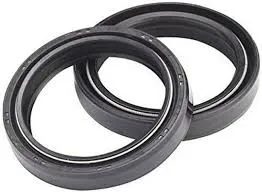9 月 . 15, 2024 08:43 Back to list
hydraulic oil seals
The Importance of Hydraulic Oil Seals in Machinery
Hydraulic systems are integral to modern machinery, playing a pivotal role in various applications across industries such as construction, manufacturing, and automotive. At the heart of these hydraulic systems lies an essential component hydraulic oil seals. These seals ensure the smooth operation of hydraulic systems by preventing leaks and maintaining pressure, which is vital for efficiency and safety.
Hydraulic oil seals, often made from materials such as rubber, polyurethane, or other elastomers, are designed to withstand diverse conditions. They are subjected to extreme pressures, temperatures, and aggressive hydraulic fluids. The choice of material influences the seal’s performance, longevity, and resistance to wear and tear in the hydraulic system. For instance, Nitrile rubber seals are commonly used due to their excellent resistance to petroleum-based oils, while fluoroelastomer seals are employed in high-temperature applications due to their superior thermal stability.
The primary function of hydraulic oil seals is to create a barrier between different components in the hydraulic system, preventing the escape of hydraulic fluid. This is crucial because any leakage can lead to a decrease in system efficiency and potentially catastrophic failures. Hydraulic oil seals help maintain the necessary pressure required for the efficient operation of hydraulic cylinders, pumps, and motors. When these seals fail, it can result in significant downtime, costly repairs, and safety hazards for operators.
hydraulic oil seals

There are various types of hydraulic oil seals, including lip seals, O-rings, and piston seals. Each type serves a specific purpose and is designed for particular applications. For example, lip seals are typically used in rotary applications and are effective in retaining oil while preventing contaminants from entering the system. O-rings, on the other hand, are versatile and can be used in static or dynamic applications, providing an easy sealing solution with minimal installation requirements. Piston seals are specifically designed for the operation of hydraulic cylinders, ensuring that hydraulic fluid does not escape and maintaining optimal performance.
Regular maintenance and inspection of hydraulic oil seals are crucial to prolonging their lifespan and ensuring the reliability of hydraulic systems. Operators should routinely check for signs of wear, such as discoloration, cracking, or deformation of the seals. Timely replacement of damaged seals can prevent more severe issues, such as fluid leaks, which can compromise the entire hydraulic system. Implementing good practices, such as using the correct seal for specific applications and adhering to the manufacturer's guidelines, can also enhance the performance of hydraulic oil seals.
In conclusion, hydraulic oil seals may seem like small components, but their role in hydraulic systems is undeniably significant. By preventing leaks and maintaining pressure, they ensure that machinery operates efficiently and safely. Regular maintenance and choosing the right seal for each application are essential steps in achieving the best performance and longevity of hydraulic systems. As technology continues to evolve, the materials and designs of hydraulic oil seals will likely advance, further improving their reliability and functionality in various industrial applications.